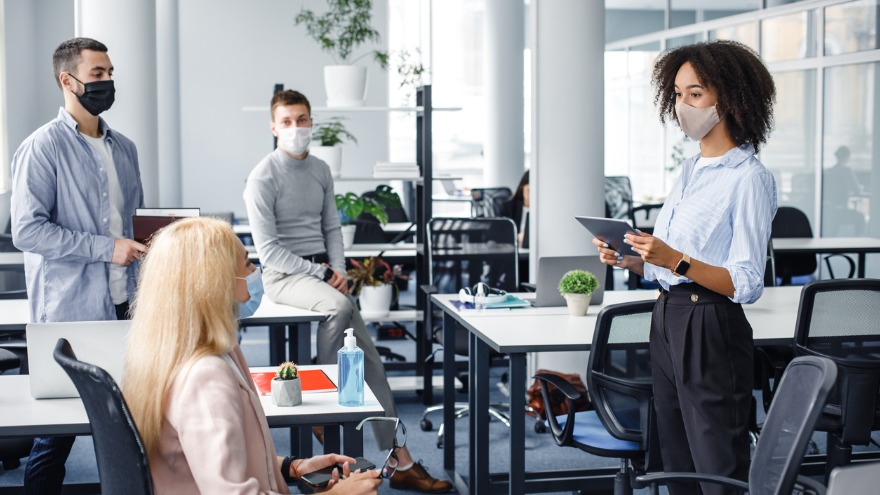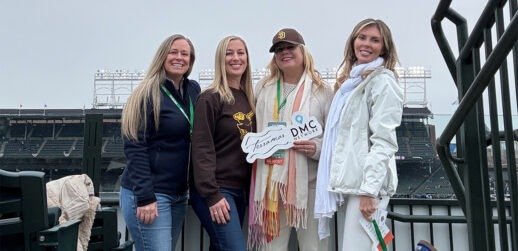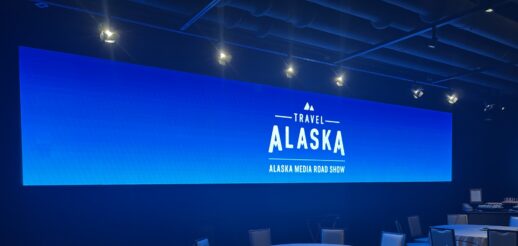Even as companies and organizations continue to debate whether to green light the return to in-person business travel, growing evidence suggests that professionally planned events “can and are being safely held.” That was the key takeaway from a broad coalition spanning the business and travel community at a virtual media conference broadcast today from the National Press Club in Washington, D.C.
Doing so, it was asserted, will accelerate America’s economic and jobs recovery.
Representatives of the Let’s Meet There Coalition, the U.S. Travel Association and the Exhibitions & Conferences Alliance, joined by CLEAR, drew a clear distinction between professional in-person gatherings from other “large gatherings,” and cited dozens of events and exhibitions that have been safely conducted in recent months, along with tools and practices to help these events continue to move forward.
Tourism Economics highlighted the value of domestic business travel to the U.S. economy, which generated $270 billion in direct travel spending, supporting 4 million U.S. jobs in 2019. Spending by business travelers declined by a staggering 68 percent last year—and is projected to take three years to rebuild to pre-pandemic levels without focused efforts to help the sector rebound.
Corporate performance is dependent on business travel as a critical means to connect with clients, build relationships and develop ideas. Tourism Economics shared a new analysis identifying the relationship between business travel and corporate performance for 14 industries over the past 26 years. It found that businesses experience an average gain of $1.60 in corporate profits for each dollar invested in business travel.
Professional meetings and exhibitions are structured events conducted under controlled environments allowing for maximum health and safety measures to protect participants, according to analysis by The Ohio State University health-care scientists.
Recent independent studies from Harvard T.H. Chan School of Public Health and the U.S. Department of Defense also corroborate the safety of air travel today. New research from Mayo Clinic, it was reported, show the risk of an infected passenger transmitting the virus to another passenger flying from the U.K. to the U.S. is infinitesimal—less than 1 in 1 million passengers.
Scientific modeling by the Exhibitions & Conferences Alliance and Epistemix has shown in-person professional meetings and events pose a near-zero (0.001 percent) risk of Covid-19 transmission to attendees—even for large events. Further, Epistemix found that events have not been a major driver of Covid cases, largely because in-person events (exhibitors and attendees) have higher vaccination rates (about 80 percent) than the overall population.
Tools such as the CLEAR Health Pass were highlighted as a seamless way for event attendees and employees to upload and verify their health status at professional events. CLEAR’s Health Pass is a free, mobile experience on the CLEAR app, which securely connects a person’s verified identity to their proof of vaccination and test results.
“Every piece of evidence that we’re seeing from the scientific and academic community tells us that, with the right practices in place, the traveling workforce and organizers of professional events can get back to the business of reconnecting with clients and colleagues,” said Roger Dow, president and CEO of U.S. Travel Association. “Ultimately, the business community will drive the return to business travel, and in doing so, will shift the economy back to greater normalcy.”
Dow joined other leaders at today’s event, including Adam Sacks, president of Tourism Economics, an Oxford Economics company; John Cordier, CEO and co-founder of Epistemix; Herve Sedky, chair of the board, president and CEO of Emerald, a business-to-business exhibitions organizer; and Caryn Seidman-Becker, co-founder, chairman and CEO of CLEAR.
The travel industry was disproportionately impacted by the economic fallout of the COVID-19 pandemic, with 65 percent of all jobs lost in 2020 supported by travel, according to U.S. Travel Association. Business travel and meetings segments suffered significant declines as travel for professional events, conferences and trade shows declined by almost 80 percent last year, resulting in a $97 billion loss in spending.
A data fact sheet to support the safety of travel for professional meetings and events is available here.




